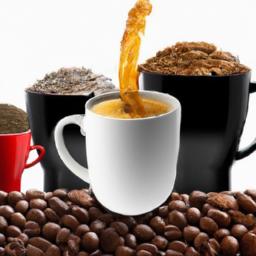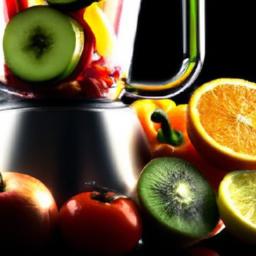Spatulas vs. Turners: Understanding Their Unique Roles in Your Kitchen
Although spatulas and turners might seem interchangeable, these kitchen utensils serve distinct purposes that can greatly impact your cooking success. Many home chefs often reach for either one without realizing which is truly ideal for specific tasks like flipping, scraping, or folding. Let’s explore how these tools differ and why choosing the right one could revolutionize your culinary routine.
Decoding the Differences: What Sets Spatulas and Turners Apart?
At first glance, spatulas and turners resemble each other, but their designs and functions make them uniquely suited for different kitchen challenges. The spatula typically features a flexible silicone or rubber blade perfect for scraping every bit of batter or gently folding delicate mixtures. In contrast, the turner, often constructed from metal or robust plastic, boasts a broad, flat surface designed to effortlessly flip burgers, pancakes, or grilled cheese sandwiches.
| Utensil | Primary Function | Common Materials | Ideal For |
|---|---|---|---|
| Spatula | Scraping, Folding | Silicone, Rubber | Mixing bowls, delicate batter handling |
| Turner | Flipping, Lifting | Metal, Sturdy Plastic | Flipping foods like pancakes and burgers |
Choosing a turner to scrape batter is like wearing hiking boots to a ballet, and using a spatula to flip burgers often ends in culinary chaos. Understanding their strengths will save you from such kitchen mishaps.
Varied Shapes and Sizes: Tailoring Tools to Tasks
Spatulas and turners come in diverse shapes and dimensions, each tailored to specific kitchen functions. For example, spatulas range from narrow, flexible blades ideal for lifting fragile eggs, to wider edges that scrape bowls clean. Turners usually feature wider, firmer, sometimes slotted blades that enable draining excess grease when flipping steaks or veggies on the grill.
Think of choosing these tools like selecting the right footwear: sneakers suit running, while ballet shoes support graceful movements. Using a flimsy spatula to flip a hefty burger is like wearing sandals on a hiking trail – not recommended!
| Utensil | Shape | Best Uses | Limitations |
|---|---|---|---|
| Spatula | Thin, flexible | Scraping, gentle folding, delicate flips | Unsuitable for heavy flipping |
| Turner | Wide, firm, slotted | Flipping, lifting heavy or greasy foods | Poor for scraping or mixing |
Flipping vs. Scraping: Which Tool Excels Where?
The act of flipping food demands a tool that slides under food seamlessly without disintegration, whereas scraping focuses on removing every leftover trace from bowls or pans. Turners, with their firm, flat, slotted blades, excel at flipping pancakes, burgers, and eggs, allowing grease to drain for a crisp finish. On the other hand, spatulas are unmatched scrapers, bending to fit bowls and saucepans and lifting sticky batter effortlessly.
| Tool | Perfect For | Why |
|---|---|---|
| Turner | Flipping solid foods | Sturdy, flat, with drainage slots |
| Spatula | Scraping pans and bowls | Flexible edges adapt to curved surfaces |
Attempting to flip a pancake with a flexible spatula is like trying to catch a butterfly with chopsticks. Conversely, scraping batter with a stiff turner can lead to wasted ingredients. Keeping both tools within reach ensures you have the perfect ally for any kitchen challenge.
Impact of Materials: Why Your Utensil’s Composition Matters
The substance from which spatulas and turners are crafted dramatically influences their performance and longevity. For example, stainless steel turners boast durability and handle heat superbly, making them ideal for searing steaks, but can scratch non-stick surfaces. Silicone spatulas offer gentle yet efficient scraping with excellent heat resistance, ideal for mixing and scraping bowls.
- Stainless Steel: Robust and heat-conductive, but potentially abrasive on delicate cookware.
- Silicone: Soft, heat-resistant, perfect for scraping and stirring.
- Wood: Gentle on cookware but prone to absorbing flavors and moisture.
- Nylon: Affordable and heat-resistant, but susceptible to melting near open flames.
| Material | Preferred Use | Considerations |
|---|---|---|
| Stainless Steel | High-heat cooking, flipping heavy items | May scratch non-stick pans |
| Silicone | Scraping, folding, non-stick-safe use | Can melt if exposed to extreme heat |
| Wood | Gentle stirring, delicate surfaces | Absorbs odors, can crack over time |
| Nylon | Everyday cooking | May melt near direct flames |
Assigning the Right Jobs: How Each Tool Shines in Your Kitchen
Each kitchen tool excels in its own domain. The spatula’s flexibility caters to scraping bowls, folding batter, and carefully lifting fragile items such as omelets or cookies. Meanwhile, the turner’s robust and wide surface is designed to effortlessly flip and lift heavier foods like burgers and pancakes, preventing breakage or mess.
| Task | Best Tool | Reason |
|---|---|---|
| Scraping batter from bowls | Spatula | Flexible edges remove every bit |
| Flipping burgers or pancakes | Turner | Sturdy and broad to support heavy foods |
| Serving delicate cookies | Spatula | Narrow edge slides under carefully |
| Turning eggs or grilled cheese | Turner | Firm surface prevents tearing |
Considering these roles as complementary rather than competitive ensures your cooking goes off without a hitch.
Choosing the Best Tool for Tender and Fragile Foods
Handling delicate items like fish fillets, soft pancakes, or fluffy omelets requires the gentlest touch. Here, spatulas, with their supple silicone blades or thin metal edges, glide under without breaking or damaging the food’s integrity. Conversely, turners made of metal or rugged plastic provide the firm surface necessary for flipping heavier, sturdier items such as burgers or steaks.
| Tool | Best For | Material | Strengths |
|---|---|---|---|
| Spatula | Delicate fish, pancakes, omelets | Silicone or thin metal | Flexible, gentle on food |
| Turner | Burgers, steaks, firm eggs | Metal or sturdy plastic | Strong, supportive for heavy foods |
Knowing when to employ gentle versus firm support is crucial to preserving your food’s texture and presentation.
Maintaining Longevity: Cleaning and Care for Your Utensils
Extending the life of your spatulas and turners is possible with proper care. Prompt cleaning prevents food residue from hardening and becoming a chore. Wooden handles require extra attention, and avoiding dishwasher cycles helps maintain their integrity. Use warm, soapy water and dry thoroughly to ward off rust or mold. Regularly inspect for damage – cracked or warped utensils should be replaced to maintain hygiene and effectiveness.
| Material | Cleaning Advice | Cautions |
|---|---|---|
| Silicone | Hand wash with soft scrubbers, avoid high heat | May degrade if overheated |
| Stainless Steel | Occasional polishing with baking soda | Avoid abrasive pads to prevent scratches |
| Wood | Wipe and oil regularly, avoid soaking | Prone to cracking and absorbing odors |
Can One Tool Do It All? Evaluating Multipurpose Use
While owning a single tool capable of flipping, scraping, and lifting might appeal to minimalist cooks, the reality is that no one utensil masters all tasks equally. Flipping often demands rigidity and width, whereas scraping benefits from flexibility and a tapered edge. Attempting to use a spatula for heavy flipping is inefficient, while a turner struggles to cleanly scrape bowls.
| Task | Spatula Effectiveness | Turner Effectiveness |
|---|---|---|
| Flipping delicate items | Sometimes works | Designed for this purpose |
| Scooping and spreading | Excellent | Unsuitable |
| Lifting heavy foods | May struggle | Strong and steady |
| Scraping bowl sides | Perfect | Inefficient |
Ultimately, investing in both tools empowers you to cook with precision and confidence, rather than compromising functionality.
FAQs: Clarifying Common Queries About Spatulas and Turners
Q: What defines a spatula?
A spatula features a thin, flexible blade designed for scraping bowls, spreading, and gentle folding tasks in the kitchen.
Q: How does a turner differ?
Turners have a wider, more rigid, often slotted blade, specifically crafted to flip and lift foods like meats and pancakes.
Q: Can spatulas replace turners?
While possible, spatulas generally lack the rigidity to flip heavy or crispy foods effectively, making turners better suited for such tasks.
Q: What’s the best tool for grilling?
Turners, with their sturdiness and grip, are ideal for flipping meats and vegetables on the grill.
Q: Are spatulas suited for baking?
Absolutely-spatulas are excellent for scraping batter and folding ingredients without deflating them.
Q: Does material choice influence performance?
Yes. Silicone is heat-resistant and safe for non-stick surfaces, stainless steel is strong but can scratch, and wood is gentle but prone to absorbing odors.
Q: How should I clean these utensils?
Warm, soapy water works best, with hand washing preferred for wood to prevent damage.
Q: Do these tools improve cooking?
Yes, using the appropriate tool for each task reduces mess, improves results, and enhances your overall cooking experience.
Conclusion: Master Your Kitchen with the Right Tools
Spatulas and turners may seem like minor players, but their unique designs serve crucial functions in cooking. Recognizing their differences and employing them thoughtfully can elevate your culinary outcomes, from perfectly flipped pancakes to impeccably scraped batter bowls.
If you aim to cook effortlessly and professionally, embracing both tools is essential. Next time you reach for a utensil, pause and consider the task ahead-flipping, scraping, lifting, or folding. The right choice will make your cooking smoother, your dishes better, and your kitchen adventures more enjoyable.





